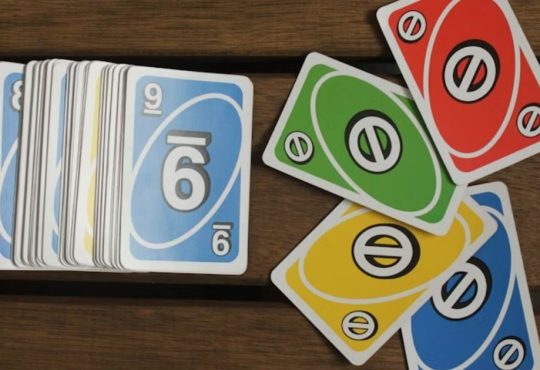Family game nights aren’t just about having fun—they provide a valuable opportunity to connect, share laughs, and build lasting memories. Board games have remained a beloved choice for family entertainment, combining elements of strategy, teamwork, and friendly competition that engage both kids and adults.
Whether sticking with a classic favorite or exploring a modern twist, selecting the right board games can elevate a simple evening at home into a truly memorable experience. Thoughtful game choices encourage participation, spark creativity, and turn ordinary nights into moments the whole family looks forward to.
Why Family Board Games Matter
Board games offer benefits beyond entertainment:
Quality Family Time
Gathering around a board game provides more than just entertainment—it creates opportunities for meaningful interaction. Shared gameplay encourages conversation, laughter, and storytelling, allowing family members to connect in a relaxed and enjoyable environment. These moments foster emotional bonding, build trust, and help families create lasting memories, making game nights a cornerstone of quality time together.
Cognitive Development
Board games often stimulate critical thinking, analytical skills, and strategic decision-making. Whether planning moves in a strategy game or tackling challenges in cooperative play, players enhance their problem-solving abilities, logical reasoning, and planning skills. For children, these activities support brain growth and cognitive development, while adults benefit from mental engagement and sharpened thinking, making board games both entertaining and educational for the entire family.
Social Skills
Board games that involve teamwork, turn-taking, or collaborative challenges help players develop critical social abilities. Children learn patience while waiting for their turn, practice cooperation when working toward a shared goal, and cultivate empathy by considering the perspectives of others. These experiences teach valuable lessons in communication, conflict resolution, and sportsmanship, skills that extend beyond game night into everyday interactions.
Stress Relief
Engaging in board games provides a fun and immersive break from daily responsibilities and routines. Playing together allows family members to laugh, relax, and enjoy each other’s company, reducing tension and promoting emotional well-being. The lighthearted competition and shared achievements create a sense of joy and satisfaction, turning game night into a rejuvenating and bonding experience for the whole family.
Popular Types of Family Board Games
Classic Strategy Games
Traditional strategy games, such as Monopoly, Risk, and Clue, challenge players to engage in complex decision-making and planning. Participants must weigh their options, anticipate their opponents’ moves, and develop effective negotiation tactics, honing their critical thinking and strategic skills. These games also encourage patience and adaptability, as players learn to adjust their plans in response to changing circumstances. Beyond skill-building, strategy games provide immersive storytelling and competitive excitement that keep players engaged for hours.
Cooperative Games
Cooperative games such as Pandemic or Forbidden Island emphasize teamwork and shared problem-solving. Players work together to overcome challenges, strategize collectively, and achieve a common objective, promoting collaboration and effective communication. These games teach children the value of supporting others, compromise, and joint decision-making, while also fostering empathy and patience. The shared sense of accomplishment at the end of a cooperative game strengthens bonds and creates a positive, inclusive gaming experience for the entire family.
Party Games
Fast-paced and lively, party games such as Pictionary, Charades, or Apples to Apples are ideal for family members of all ages. These games encourage creativity, quick thinking, and spontaneous fun, often resulting in laughter-filled interactions that lighten the mood. Party games are particularly effective at breaking the ice, engaging reluctant players, and fostering a sense of playful competition. Their short rounds and dynamic gameplay make them perfect for mixed-age families or gatherings where energy and excitement are key.
Educational Games
Games like Scrabble, Brain Quest, and Math Dice seamlessly combine learning with play, offering children an engaging way to challenge their minds and develop their skills. These games support skill development in areas such as vocabulary, math, critical thinking, and memory while keeping the experience enjoyable. Educational games foster curiosity, problem-solving skills, and persistence, making them ideal for children who enjoy challenges and thrive in learning environments. Additionally, they provide adults with opportunities to model learning behaviors, collaborate on strategies, and share knowledge in a fun, interactive setting.
Modern Favorites
Contemporary board games, such as Ticket to Ride, Catan, and Azul, combine strategy, luck, and interactive gameplay to engage players of all ages. These games challenge participants to plan their moves carefully, manage resources effectively, and adapt to changing situations, while also incorporating elements of chance that keep each round unpredictable and exciting. Modern favorites often encourage negotiation, trading, and friendly competition, promoting social interaction and collaboration. With visually appealing components, immersive themes, and replayable scenarios, these games offer long-lasting entertainment that can captivate both children and adults, making them perfect additions to family game nights.
Tips for Choosing the Right Board Game
Consider Age Appropriateness
Selecting a board game that matches the abilities of the youngest players is essential to ensure everyone can participate and enjoy the experience. Games that are too complex can lead to frustration, while overly simple games may bore older children or adults. Age-appropriate games provide the right balance of challenge and accessibility, keeping all players engaged, encouraging learning, and fostering a sense of accomplishment for younger participants.
Check Game Duration
The length of a game can significantly impact enjoyment and attention spans. Shorter games are ideal for younger children or families with limited time, as they offer quick rounds that help maintain energy and focus. Longer, more involved games are better suited for older kids or extended game nights, as they allow for deeper strategy, planning, and immersive storytelling. Choosing the right game duration helps ensure that every player remains interested, engaged, and satisfied by the end of the session.
Balance Luck and Skill
Selecting games that blend elements of chance and strategy ensures that all players, regardless of age or experience, have a fair opportunity to succeed. Games that combine skill and luck keep gameplay exciting, prevent frustration for younger or less experienced players, and maintain engagement for everyone. This balance promotes learning through strategy while still allowing unexpected twists, keeping each round dynamic and fun.
Encourage Inclusivity
Choosing games that accommodate multiple players and emphasize teamwork ensures that everyone can participate and feel valued. Inclusive games promote collaboration, cooperative problem-solving, and shared victories, fostering positive social interactions. By selecting games that welcome a variety of ages and abilities, families can create an environment where each player contributes, learns, and enjoys the experience together.
Replay Value
Choosing games with multiple strategies, varied scenarios, or adjustable rules ensures long-term engagement and enjoyment. Games that offer different paths to victory, random setups, or modular components prevent gameplay from becoming predictable, keeping each session fresh and exciting. High replay value encourages families to return to the same game repeatedly, enabling players to develop new strategies, refine their skills, and explore creative approaches. This not only maximizes the investment in the game but also keeps family game nights consistently entertaining and dynamic.
Making Game Night Special
- Set the Mood: Creating a welcoming and comfortable environment can enhance the enjoyment of family game nights. Dim the lights slightly to reduce distractions and create a relaxed atmosphere. Consider playing soft background music to add ambiance without overpowering conversation. Arranging a cozy space with blankets, pillows, or cushions encourages everyone to settle in comfortably and feel at ease. Thoughtful preparation of the game area not only makes the experience more inviting but also helps children focus, relax, and fully immerse themselves in the fun of the games.
- Snack Smart: Providing convenient, mess-free snacks can make family game nights more enjoyable and stress-free. Opt for bite-sized treats like fruit slices, cheese cubes, or crackers that are easy to handle and won’t interrupt gameplay. Include drinks in spill-proof cups or bottles to keep everyone hydrated without creating a sticky mess. Thoughtful snack choices help maintain high energy levels, keep focus, and allow the family to enjoy uninterrupted fun while minimizing cleanup afterward.
- Rotate Game Selection: Keeping family game nights exciting can be as simple as varying the games played each session. Alternating between classic favorites and modern titles ensures that every night feels new and engaging, catering to different interests and energy levels. Rotating games also exposes children to a range of skills, strategies, and themes, preventing monotony and encouraging creativity. By offering a mix of experiences, families can maintain enthusiasm, spark friendly competition, and ensure that everyone looks forward to the next game night.
- Celebrate Wins: Highlighting accomplishments during game night reinforces positive experiences and encourages good sportsmanship. Recognize both significant victories and small achievements, whether it’s completing a challenging move, showing creative thinking, or simply taking turns fairly. Praising effort rather than just outcomes fosters confidence, motivates participation, and helps children learn the value of fair play and perseverance. Celebrating wins creates a supportive atmosphere, strengthens family bonds, and ensures that every player feels appreciated and included in the fun.
How Board Games Strengthen Family Connections
Family board games go beyond simple entertainment—they offer a chance to connect, learn, and make lasting memories together. Playing games encourages conversation, laughter, and teamwork, helping to strengthen bonds between family members while providing opportunities for children and adults alike to develop critical thinking, problem-solving, and social skills.
With so many options available, from strategy-heavy classics to fast-paced party games, there’s something to match every age, interest, and energy level. Thoughtfully planned game nights can transform ordinary evenings into exciting, memorable experiences, creating a tradition that families look forward to week after week.





